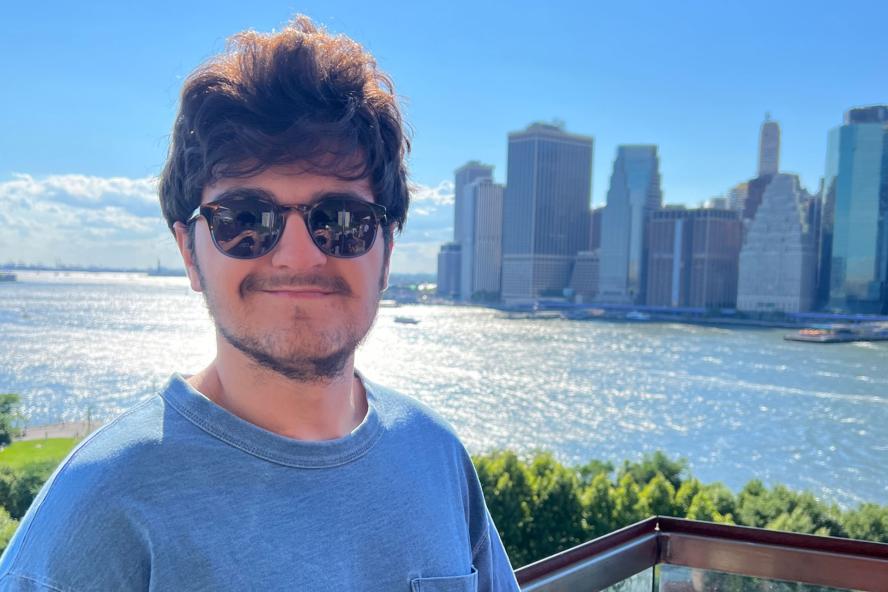Instructor Spotlight: Andres Antonio

Tell us about yourself and what inspired you to teach this course
For as long as I can remember I have been playing Nintendo games such as Mario Kart, Super Smash Bros, and Pokémon, and they have become a huge part of my life. Throughout high school and college I have been involved in DEI work such as leading seminars on queer representation in media, leading affinity groups, and attending conferences. I was inspired to teach this course by the possibility of combining two fields that are important to me and the opportunity to share what I love and know with the greater Tufts community.
What has the experience of teaching and designing this course taught you?
First and foremost it has taught me how hard it can be to design and prepare a semester long college course, it is no joke! But, at the same time, it has taught me that my passion for these topics has never left. I have learned more about myself and my relationship with these topics, and how others understand the material. This experience has taught me that I always need to be thinking outside the box and plan for situations in which a discussion or activity might not go the way I wanted it to. I always need to be ready to adapt to the class and see what we can do next.
What’s a game that has really great representation, and why?
I would argue that “Apex Legends” has great representation. Along with representing many identifiers in a real way, a handful of its playable characters are explicitly written as queer or have a backstory indicating that they may be. More importantly though, the characters are fully fleshed out and do not rely on stereotypes to create the character, but rather celebrate the characters for who they are and allow the player to develop deeper connections with who they decide to play as.
What’s an area in video game representation that you think needs to be improved?
Unfortunately, there are many areas of representation that need work, but I think the biggest one is not within games themselves, but rather within the industry. The video game industry is predominantly white, and marginalized communities are often discouraged from pursuing careers within the industry because of the current makeup and perceptions of who works in the industry. There are programs and opportunities that are trying to combat these views and help communities get more involved such as Girls Who Code and Project Include, but there is still work to be done to make sure everyone has access to the industry if they want to pursue it as a career.
Your students will play the game "Celeste" this semester. Can you talk a little bit about why you chose this game?
I chose “Celeste” for many reasons. The biggest reason is that I think it does an amazing job with its mental health representation. The game provides an emotional and real narrative that I have never seen before in a game, and I want to share that with the class as a culmination of what we have learned throughout the semester. Additionally, from a logistical standpoint, the game is available on all platforms and offers a variety of accessibility options. There is no way to sugar coat it: the game is incredibly difficult. “Celeste” is one of the hardest platformers I have ever played, but it offers options such as the ability to slow the game down, power ups, and an “assist mode” to make the game easier for those who may want or need it. These options demonstrated that it would be a good game for my class to play so it can appeal to players with different levels of experience.
What do you hope that students will take away from your course?
I want them to have a greater understanding of the evolution of representation in video games through a DEI lens and push themselves to think critically about the games that they are playing with the messages the games are sending. Additionally, I hope they develop new perspectives that help challenge the stigma surrounding games. Video games are an incredible outlet for creativity, community, and skill development. They face various challenges in today’s world with how people see them, but I hope my class helps my students understand the good they can do.
Andres Antonio (he/him) is a senior from Brooklyn, NY majoring in Engineering Psychology and minoring in Dance. On campus, he is a co-director of Spirit of the Creative (SOC), Tufts’ hip hop and choreography dance team, and he also teaches weekly TUSC Dance Fit classes.